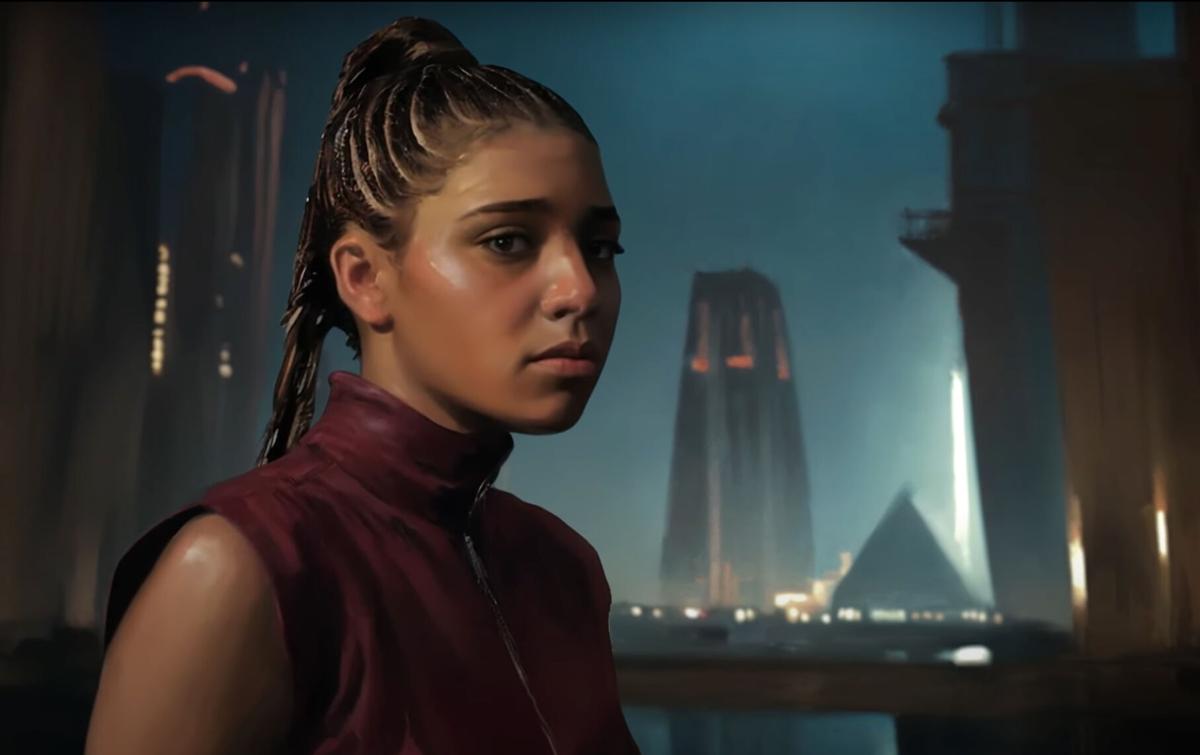Opera has long been reinventing itself with innovations including supertitles (1983) so audiences could translate the foreign language they were hearing and video projections (around 2018) that enhanced stage sets and allowed opera companies to give audiences a more expansive visual experience.
Last weekend, unveiled what could become the latest innovation, artificial intelligence.
The company became the first to fully integrate AI into a live opera with its concert production of Verdiтs тAida.т While eight lead vocalists and a choir of 46 performed on the Linda Ronstadt Music Hall stage, an AI-generated full-length film of the opera played on a big screen.
The experience was far more interesting than watching a straight-up concert performance of Verdiтs grand opera, but there were enough head-scratching moments during the three-hour performance to beg the question: Are we really ready to go there?
People are also reading…
Truthfully, it needs a little work.
There were some hiccups reverse-syncing the filmтs avatars to the live vocalists, which is unlike what the audience will experience when the performs тStar Wars: The Force Awakens In Concertт on May 17-18. The conductor for that performance has to sync the live orchestra with the film. On Saturday, the film was synced with the live performance, although there were a couple of times where the lips on the screen were not matching the voices on the stage.
But thatтs fixable. What was a little more perplexing was figuring out if we were in ancient Egypt or modern-day America.
Verdi set тAidaт in ancient Egypt, somewhere around 2700 to 2200 BC. Itтs common to recast the timeline to make a 300-year-old opera resonate with todayтs audience, but you couldnтt tell with projection designer and film director David Murakamiтs film if we were in ancient, 21st century or circa WWII Greece.
The physical landscape looked to be ancient-ish Egypt but the avatarsт costumes were straight out of the 21st century: Radames wore capris and sneakers while the King of Egypt was rocking a tie and button-down shirt and his daughter Amneris wore a skin-tight, just-above-the-knees dress.
Battle flashback scenes showed WWII-era tanks and rifles.
And in a scene that prompted Saturdayтs sold-out audience at Linda Ronstadt Music Hall to laugh out loud, Radames and Aida are have a heart-to-heart on the phone т sheтs on an old-school rotary dial, heтs on a cordless.
But the biggest problem with integrating AI into live opera was that it gave the audience one more distraction from the action on stage. There was the deliciously big-voiced choir sitting under the giant screen showing the film, the impressive cast performing in front of the choir section and the supertitles scrolling above the stage.
Add into that two pairs of trumpeters playing on the far sides of the stage in one scene and focusing on the gorgeous music Conductor Stephanie Rhodes Russell was summoning from the very fine 61-player-strong УлшжжБВЅ Opera Orchestra and it was dizzying.
But as Joseph Specter, making his final appearance Saturday as the operaтs president and general director, noted: the most important thing is staying true to the art, the voices.
In that arena, УлшжжБВЅ Opera hit a home run with soprano Leah Hawkins, who understandably seemed to be tiptoeing lightly into her role debut at Aida; Limmie Pulliam, who took his tenor to impossibly high highs as Radames; and soprano Jennifer Johnson Cano in a stunning vocal performance as Amneris.
Other standouts included the richly voiced bass-baritone Peter Barber as the King of Egypt and Emma Marhefka, whose soaring soprano turned the minor role of priestess into an unforgettable moment.
Saturdayтs performance closed out УлшжжБВЅ Operaтs season and was the finale of the .











